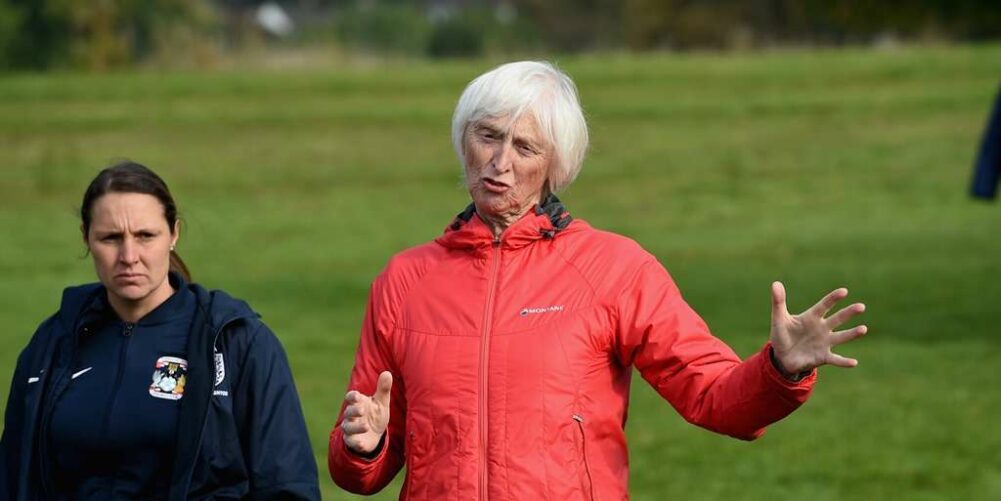By Kieran Theivam
Head of Women’s Football at the FA, Baroness Sue Campbell, believes events such as FA Girls’ Football Week can “transform women’s football” after record numbers of participation in the past week.
More than 80,000 women and girls took part in some form of football activity across the country, with universities, schools, colleges, community groups, clubs and other organisations across England putting on almost 1,500 events throughout the week.
It’s the second to be held this year, with 50,000 women and girls participating back in April.
The aim of the weeklong series of events is to create and drive female participation by encouraging academic and sports institutions and organisations to run football sessions.
Baroness Campbell, who made the move to the FA from UK Sport in January, was overwhelmed by the numbers achieved, but, more importantly, was encouraged by the diversity of those taking to the field.
“There has been massive demand this week, not just from young people trying the game for the first time, but from those returning who may have dropped out of it,” she said.
“Women’s football is about more than just the game itself, it’s about fun, friendship and fitness, and that is what Girls’ Football Week is all about.”
The week’s activities have seen players from clubs all over the country hold training sessions, Q&As and tutorials with attendees, delivered in partnership with the Independent Schools FA, English Schools FA, Association of Colleges Sport, British Universities and Colleges Sport, the Premier League and the English Football League. The aim was for 22,000 women and girls to pull their boots on over the course of the week – with the target being smashed by almost four times that number.
Baroness Campbell said her role is to double participation numbers in women’s football by the year 2020, and she outlined that while the work was already well underway, her responsibility was to drive it onto another level.
“The first thing that struck me when I took on this job was the clear enthusiasm and commitment of so many – there was clearly a lot of endeavour, but no clear over-arching picture,” she said.
“I’m trying to create a new vision, which includes a high achieving England team, and a talent pathway for youngsters to follow.”
Doubling participation numbers in four years is without question ambitious, but women’s football is currently the largest female team sport in England with more than 2.89m players reported to be involved in the game.
Baroness Campbell concluded by saying that the potential in the women’s game gave her hope in achieving their target, with the focus on a much wider strategy, not just an FA one.
“The potential for the game is massive, there is so much interest from women of all ages,” she said.
“I’ve said all along that this is a strategy for football, which we and all our stakeholders need to look at – it’s like a big puzzle which we all need to help fill in the pieces.
“If we can build on events like Girls’ Football Week, then we can transform the game to another level.”
















